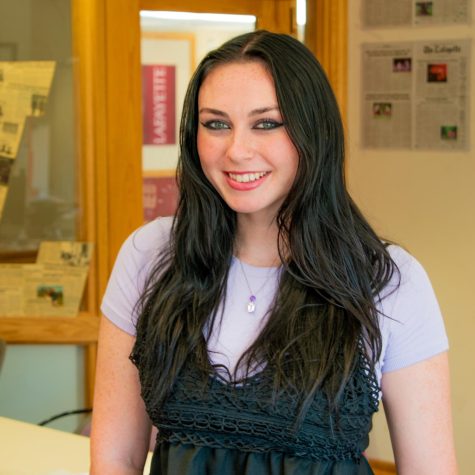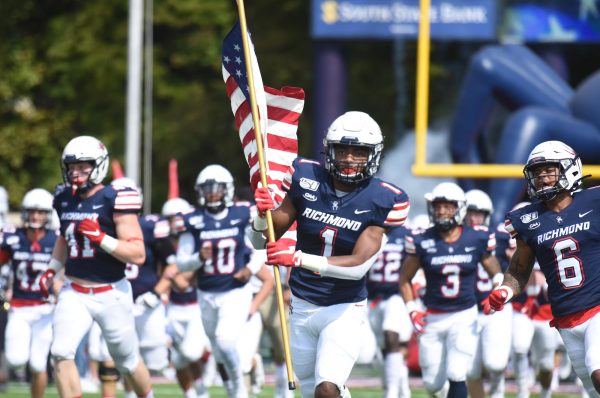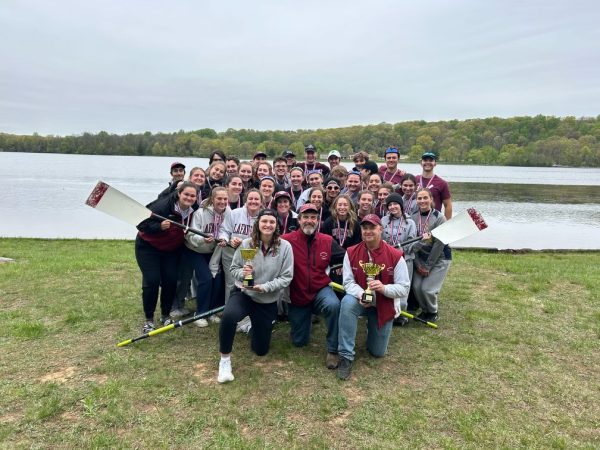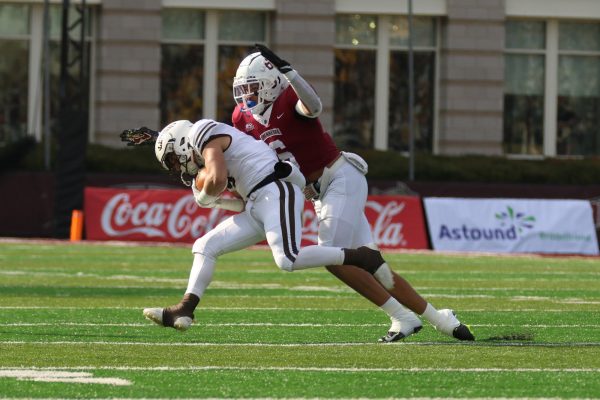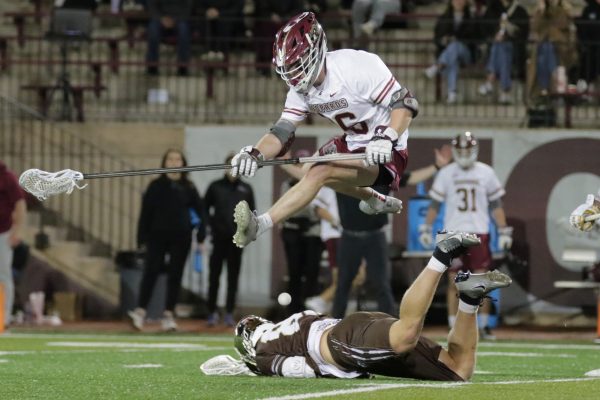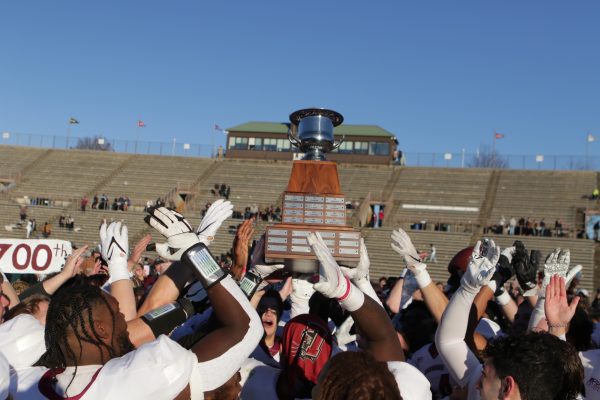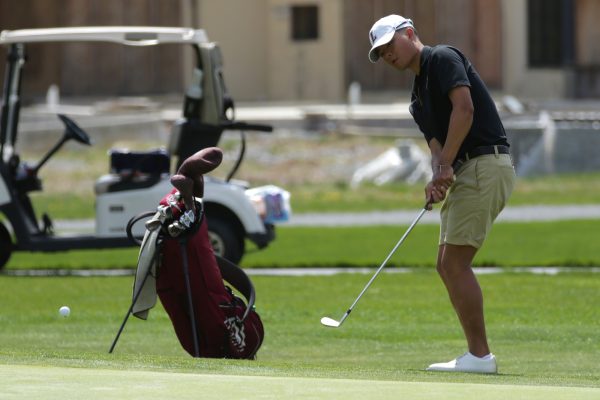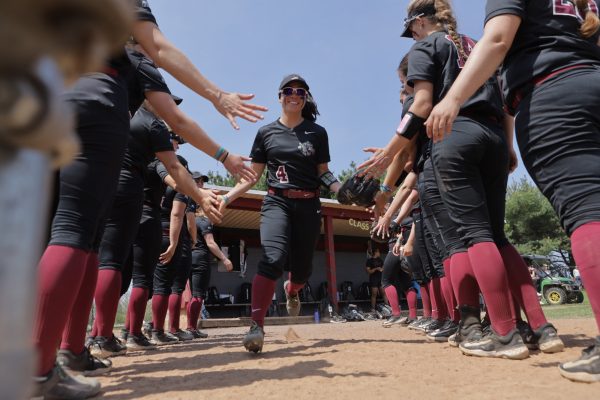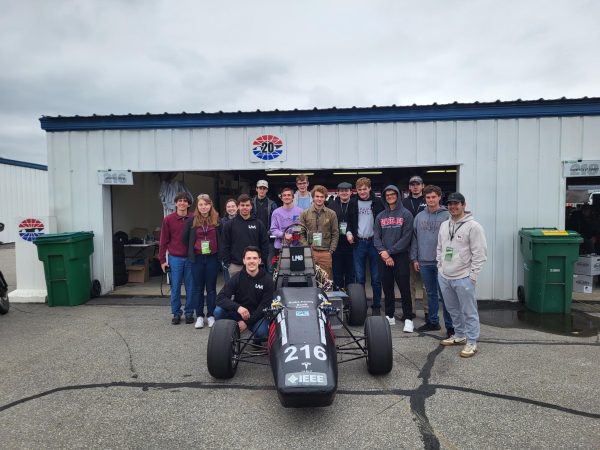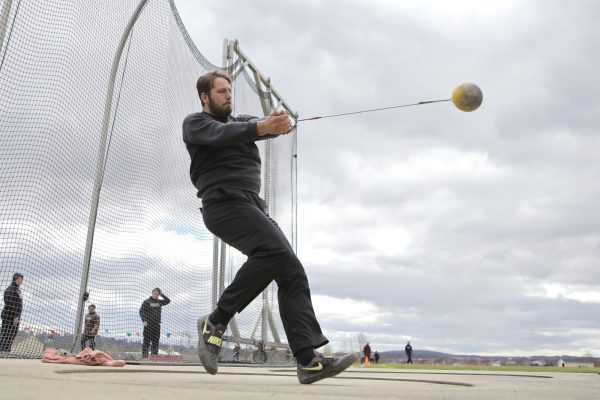Reinventing the wheel: Professional race car driver and mechanical engineering major Max Faulkner ’22 has a passion for motorsports
Senior Max Faulkner Faulkner has been helping to run the mechanical engineering department’s formula hybrid car while also competing professionally in races. (Photo courtesy of Max Faulkner ’22)
March 25, 2022
Senior Max Faulkner is not your average mechanical engineering major, as he has been applying what he learns about motorsports at Lafayette to the professional race track.
This school year, Faulkner helped run the mechanical engineering department’s formula hybrid car from a technical and mechanical point of view. He also has been working on a new chassis design for the motorsports team to use next year.
Faulkner has been heavily involved in the motorsports team since it got started up this past year. As Faulkner explained, they recently made the decision to make the club more collaborative among mechanical engineers from different class years rather than it solely being a senior project.
“The club focuses on running the car and getting out to competition. The idea was to leave the seniors to focus on recent proper research and development,” Faulkner said. “Particularly after winter break there was a really big pivot, and that’s when we started to switch our attention on what’s coming up.”
The seniors have still been involved with the club while been building the car and getting ready to go to competition.
“There’s always communication between the two [groups], but most of our focus is now on getting the ball rolling on creating a longer-term outlook for this program,” he said. “Not just focusing on it year to year, but rather giving the club the opportunity to look into the future, building a car that’s not just going to competition but going to competition to win.”
In addition to motorsports, Faulkner is completing an independent study with Professor Alexander Brown.
“Dr. Brown got a full motion racing simulator in his lab, so I’ve been working on that with him,” Faulkner said.
Faulkner has been involved with racing since age 10, as his dad was always into motorsports. He started with competitive go-karting, and once he was 16 he stepped up into pro-level racing. Five years ago, he made the step up into the series he is currently in, which is just one step down from the top level of sports car racing.
In August of 2020, Faulkner placed first at Road America for the International Motor Sports Association (IMSA) Michelin Pilot Challenge, scoring his first career Motul Pole Award in the Tour Car Racing (TCR) category. Faulkner nabbed the pole position in the final seconds of the 15-minute session. In the No. 23 FASTMD Racing with Speed Syndicate Audi RS3 LMS, Faulkner once again stole the win in just 0.002 seconds, with a winning time of 2:21.358.
In September of 2020, Faulkner earned his third Motul Pole Award of the season with a lap of 1:31.267 (89.065 mph) in the same car. This placement was tied for most in series in one season.
Recently, Faulkner made the switch from the Tour Car Racing category (TCR) to Grand Sport (GS), which involves slightly faster cars.
“It was quite a different atmosphere this weekend. It was my co-driver’s first-ever big professional race, and my first race in this category,” Faulkner said.
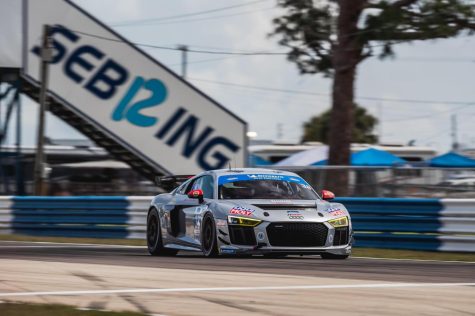
Unfortunately, Faulkner caused some damage to the car, which later manifested itself as an Anti-lock Breaking System failure in the tire barrier.
“It was not the weekend we were looking for, but it was still good to be out there. Just being back in the paddock and getting my feet wet in the series again was great,” he said. “I’m just hoping that there’s more to come this year and seeing what else could happen.”
Besides possible damages to the car, Faulkner experiences additional challenges.
“Outside of the car this weekend, it was ninety-two degrees and sunny and humid. In the car, my data recorder read around 130 degrees. We’re sitting in a 130-degree car with a full race suit on, and it’s not breathable material,” he said. “The biggest thing initially is hydration leading up to the weekend, because you’re gonna lose a lot of water during the race. In these cars, there’s no AC and the air’s staggering, so it gets pretty warm pretty quick.”
After graduation, Faulkner plans to pursue a career as an engineer in the motorsports industry.
“I’ve been doing this well over half my life, and mechanical engineering and race cars go pretty hand in hand,” he said. “If I can find a job in the motorsport industry that excites me, that would be the way I will go, whether that be as a driver or as an engineer.”




































































































